Uzbek-Origin Islamic Fintech Start-Up ‘IMAN’ is on the Trajectory for Global Expansion
Interview with Rustam Rahmatov, co-founder and CEO of Islamic Fintech Start-ups IMAN and U
FB: Rustam, please introduce yourself and the start-ups
RR: As the founder and CEO of IMAN Holding and U, I lead two innovative companies at the forefront of Islamic fintech. With a solid background in finance and technology, I’ve obtained extensive experience in the fintech sector through different roles at organisations such as Ernst & Young (E&Y), IFG Capital (Luxembourg based family office), the International Finance Corporation (IFC, World Bank Group). My education at Oxford Brookes University in London has provided me with a strong foundation in business and finance, including islamic finance enabling me to drive innovation and success at both IMAN Global and U.
Under the umbrella brand IMAN Holding, which has its origins in Uzbekistan, we offer two main products: IMAN Invest and IMAN Pay.
Additionally, we have recently launched U, our innovative RegTech and Banking-as-a-Service (BaaS) solution designed to transform the Islamic banking industry. U will be integrated with our existing platforms and aims to help us build a global digital banking system using Islamic Regulatory Technology and BaaS, ensuring Shariah compliance according to AAOIFI and all 4 madhabs on the transaction level. Our mission is to create a fully compliant banking system that aligns with Islamic values.
FB: Let’s discuss some figures. The total amount of Islamic finance assets globally reached $4.5 trillion USD in 2022, with an 11% growth rate. Islamic Banking holds the highest share at 72%, followed by Sukuk at 17%, OIFIs at 4%, Islamic Funds at 5%, and Takaful at 2%. However, Islamic finance assets represent only 2.5% of the global financial assets, despite the global Muslim population being estimated at over 1.8 billion.*
RR: The growth of Islamic finance assets to $4.5 trillion USD in 2022, with an 11% growth rate, is indeed impressive and demonstrates the increasing demand for Shariah-compliant financial products. Islamic banking’s dominance with a 72% share highlights its crucial role in the industry, while the substantial contributions of Sukuk, Islamic Funds, and other Islamic financial instruments underscore the diversity and resilience of Islamic finance.
However, the fact that Islamic finance assets still account for only 2.5% of global financial assets, despite the global Muslim population exceeding 1.8 billion, indicates a significant untapped potential. This gap highlights the need for more inclusive financial products and services that cater to the ethical and religious values of the Muslim community.
As the CEO and founder of IMAN Global and U, I see this as a tremendous opportunity to innovate and expand our offerings. When any bank globally wants to launch islamic fintech products we will be there to enable them to launch any fintech product they want to use such as; payment, deposits, BNPL, leasing, house financing, etc.
“To achieve this, I would underline the importance of collaboration among fintech companies, traditional banks, and regulators. Such partnerships are essential for accelerating the global adoption of Islamic finance. By working together, we can create a more robust and inclusive financial ecosystem that addresses the diverse needs of the Muslim population and beyond. The future of Islamic finance is promising, and with the right strategies in place, we can bridge the gap and unlock its full potential.”
FB: What Islamic banking products are offered by IMAN? Which markets are you targeting with IMAN? How many clients does IMAN currently have?
RR: IMAN group offers the following products on its platform.
IMAN Invest: An investment platform that lets users invest in Shariah-compliant assets and receive dividends. While it aims to provide interest-free and speculation-free investment opportunities, currently, investments are redirected to IMAN Pay. IMAN Pay offers a BNPL (Buy Now Pay Later) service at partner merchants, turning investors into revenue partners for IMAN.
Features:
- Equity Investments: Planned future feature for investing in Shariah-compliant stocks and shares.
- Real Estate Investments: Planned future feature for investing in halal real estate projects.
- Diversification: Currently, investments support IMAN Pay’s BNPL service, ensuring all activities align with Islamic financial principles.
IMAN Pay: A Buy Now Pay Later (BNPL) service that allows customers to purchase goods and services with deferred payments. Iman Pay ensures all transactions comply with Shariah principles, offering a halal alternative to conventional credit.
Features:
- Interest-Free Financing: Offers instalment plans without any interest charges, ensuring compliance with Islamic laws.
- Flexible Payment Options: Provides customers with the convenience of paying in instalments over a specified period.
- User-Friendly Platform: Easy-to-use interface that simplifies the purchasing process for customers.
Our target audience is muslim population all over the world, with a strong focus on Central Asia (Uzbekistan), MENA Region (Including Qatar, Saudi Arabia, UAE, and Egypt), Indonesia, Malaysia, Pakistan, Bangladesh, Expats and communities in Western countries.
Today, we have over 30,000 active investors on the IMAN Invest platform.
FB: Could you briefly describe your business/revenue model?
RR: IMAN’s Pricing and Revenue Model effectively leverages both B2C and B2B strategies. In the B2C model, revenue is generated through discounts from merchants, resale mark-ups to shoppers, profit-sharing with investors and early redemption fees. In the B2B model, substantial revenue comes from setup fees and royalty fees charged to banks and fintech companies, ensuring a smooth and scalable income stream. This dual approach enables IMAN to capitalise on both direct consumer transactions and enterprise-level partnerships.
- Business Model B2C:
- IMAN Invest
Business Model: Charges management fees and/or performance fees on investments. Generates revenue from transaction fees, asset management fees, and potential advisory services.
Revenue Streams:
Management Fees: Percentage of assets under management.
Performance Fees: Based on investment returns exceeding a certain benchmark.
Transaction Fees: Fees for executing trades and transactions.
- IMAN Pay
Business Model: Earns revenue through merchant fees and late payment charges. Partners with retailers and service providers to offer BNPL solutions.
Revenue Streams:
Merchant Fees: Commission from retailers for offering IMAN Pay as a payment option.
Additional Revenue Streams
Partnerships and Collaborations: Revenue from strategic partnerships with financial institutions and other organisations.
Service Fees: Charges for premium services or additional features offered to users.
- B2B Business Model:
- Invest-as-a-Service
- BNPL-as-a-Service
- Scoring-as-a-Service
The IMAN Scoring System evaluates creditworthiness using alternative data sources, such as utility bills and e-commerce payments, to provide personalised, Shariah-compliant assessments without traditional credit scores.

Photo: Rustam Ro at TC Disrupt
FB: What inspired you to start IMAN, and what problem were you aiming to solve in the targeted markets?
RR: The idea for IMAN came to me while I was drinking tea with my co-founders. We were talking about how 71% of people in the world can’t access banking services and how there’s a lack of Shariah-compliant financial options. That’s when we decided to do something about it. We wanted to create financial products that are accessible and ethical, allowing people to bank without compromising their values. So, we started IMAN to bridge that gap and offer solutions that really make a difference in people’s lives.
We aim to solve the following problems with our products:
- Lack of Accessible Halal Financial Products: Many Muslims have limited access to financial services that comply with Islamic laws. IMAN aims to provide Shariah-compliant investment and BNPL solutions to fill this gap.
- Ethical Investment Opportunities: Conventional financial products often do not align with Islamic ethical principles. IMAN offers transparent, interest-free investment options that adhere to Shariah guidelines.
- Convenient Halal Financing: Traditional credit services can involve interest and complex terms. IMAN’s BNPL service provides a straightforward, interest-free alternative for purchasing goods and services.
FB: How difficult was it to obtain the necessary licences for your operations in the targeted markets, and what challenges did you face during this process? Does IMAN comply with international standards developed by IFSB and AAOIFI?
RR: Getting licences for IMAN wasn’t easy, with all the different regulations and the need for Shariah compliance. But we’re on track to get our Islamic banking licence in Uzbekistan.
For expansion, we actually don’t need a licence because we’re a tech company. We help banks launch new products using a white-label model, which works on a revenue-sharing basis.
And yes, we comply with IFSB and AAOIFI standards to ensure everything is Shariah-compliant.
FB: What innovative features or technologies set IMAN’s products apart from competitors?
RR: IMAN’s products truly stand out because of several innovative features and technologies that cater to our users’ needs. One of the key highlights is our Shariah-compliant investment algorithms within our investment platform, IMAN Invest. These advanced algorithms ensure that all investments align with Shariah principles, providing our users with transparency and ethical investment options.
Our user-friendly BNPL (buy now, pay later) service features a fully integrated, interest-free financing model, which allows for straightforward, Shariah-compliant transactions that make financial planning easier.
Our RegTech solution makes it much simpler for our users to adhere to Islamic finance standards and local regulations, giving them peace of mind. Furthermore, our systems provide real-time compliance monitoring, ensuring ongoing Shariah compliance. This enhances trust and reliability for our users, knowing that their investments and transactions are continuously being monitored.
Lastly, our global digital platform supports multiple languages and currencies, facilitating access to Islamic financial services for a diverse, global audience.
Overall, these features ensure that IMAN offers advanced, compliant, and accessible financial solutions that truly differentiate us from traditional banks and other fintech competitors.
FB: What strategies have you employed to reach and engage your target market audiences?
RR: To effectively reach and engage our target market audiences at IMAN, we employ localised marketing campaigns that resonate with the unique cultural and economic contexts of each region. We also form strategic partnerships with local financial institutions, retailers, and influencers to boost brand visibility and build credibility within these markets.
Additionally, we focus on providing educational content about Islamic finance principles and the benefits of Shariah-compliant products. We share this information through blogs, webinars, and social media to educate and attract potential users.
Being user-oriented, we continuously gather feedback from our users to understand their needs and preferences. This feedback is invaluable, allowing us to adapt our products and strategies accordingly to improve engagement and satisfaction. By prioritising our users, we ensure that IMAN remains relevant and responsive to their needs.
FB: As start-up founders, what challenges do you see in raising funds for technology products, particularly in the field of Islamic finance?
RR: Raising funds for tech in Islamic finance can be tricky. Many investors aren’t familiar with Shariah principles, so we spend a lot of time educating them about the potential and unique needs of our market. Compliance concerns and regulatory changes add another layer of complexity. Plus, it’s tough to stand out in the crowded fintech space, especially when our tech is both innovative and Shariah-compliant.
But here’s the kicker: once investors realise that by 2060 there will be 3 billion Muslims worldwide, they get motivated to understand and support us. In Central Asia, while there’s still a knowledge gap and some scepticism, the entry of international companies is improving the scene and making it easier for us to raise funds.
We seek the following target groups of investors for our solutions:
- Islamic Venture Capital Firms: Firms specialising in investing in Shariah-compliant startups and technologies.
- Impact Investors: Investors focused on making a positive social and ethical impact, aligned with the principles of Islamic finance.
- High-Net-Worth Individuals (HNWIs): Particularly those with an interest in Islamic finance or ethical investments.
- Institutional Investors: Banks, financial institutions, and funds with a mandate to invest in Islamic finance and fintech innovation.
- Strategic Partners: Organisations or companies that could benefit from or enhance their offerings through partnership with IMAN.
By addressing these challenges and targeting the right investors, we aim to secure the necessary funding to advance our innovative technology solutions in Islamic finance.
FB: What was your experience like securing funding for IMAN, and what advice do you have for other founders seeking investment?
RR: Securing funding for IMAN was quite the adventure. We pitched in Switzerland, Saudi Arabia, the US, Qatar, Kazakhstan, Central Asia, Russia, and more. Our focus wasn’t just on Islamic finance enthusiasts. We targeted product and industry-agnostic investors who were interested in innovative tech rather than just Shariah compliance.
We spent a lot of time educating potential investors about Islamic finance and showcasing our market potential. Navigating regulatory challenges and proving our credibility with successful pilot projects were key. Building trust through networking at industry events and tailoring our pitch to align with investor interests also played a big role.
“For other founders seeking investment, I recommend educating your audience about your niche market and product specifics. Focus on compliance and be ready to address any concerns. Highlight early successes to provide proof of concept, and build strong networks to open doors. Customising your pitch to resonate with different investors is crucial, and remember to be persistent and resilient in the face of challenges.”
FB: What trends do you see shaping the Islamic finance industry, and how is IMAN positioned to take advantage of them?
RR: At IMAN, we’re actively responding to several key trends shaping the future of Islamic finance.
Digital Transformation is at the forefront, as the shift towards digital banking and fintech accelerates. We’re embracing this trend with our advanced digital platforms for investment and BNPL, providing seamless, tech-driven Shariah-compliant solutions.
There’s also a growing demand for ethical finance. As more individuals seek ethical and sustainable investment options, IMAN is well-positioned to meet this need by offering Shariah-compliant products that align with ethical investing principles.
We’re also witnessing significant advancements in RegTech innovations. By integrating cutting-edge regulatory technology, IMAN enhances compliance and transparency, ensuring we adhere to Islamic finance standards.
Global market expansion is another trend we’re capitalising on. Islamic finance is moving beyond traditional markets, and IMAN is targeting global Muslim populations to make our products accessible worldwide.
The integration of AI and big data is transforming financial services. At IMAN, we utilise these technologies to optimise our investment algorithms and enhance user experience.
Finally, there’s a strong focus on financial inclusion. IMAN aims to bridge gaps in banking access by offering inclusive and user-friendly financial solutions.
“By aligning with these trends, IMAN is positioned to capitalise on the evolving landscape of Islamic finance.”
FB: What are your long-term goals for IMAN, and what exciting developments can we expect in the near future?
RR: Our big goal is to go global. After we break even in Uzbekistan in Q3 2024, we’re zeroing in on Qatar and UAE as our next key markets. We’re not just sticking with IMAN Invest and IMAN Pay; we’re planning to roll out new Shariah-compliant financial services to meet more needs.
We’re also pumping resources into cutting-edge tech to make our platform better and more user-friendly. Our mission is to make Shariah-compliant financial solutions available to people everywhere.
FB: Thank you!
*Stats Source: https://www.lseg.com/en/insights/data-analytics/navigating-uncertainty-global-islamic-finance-assets-expected-to-exceed-67-trillion-by-2027


